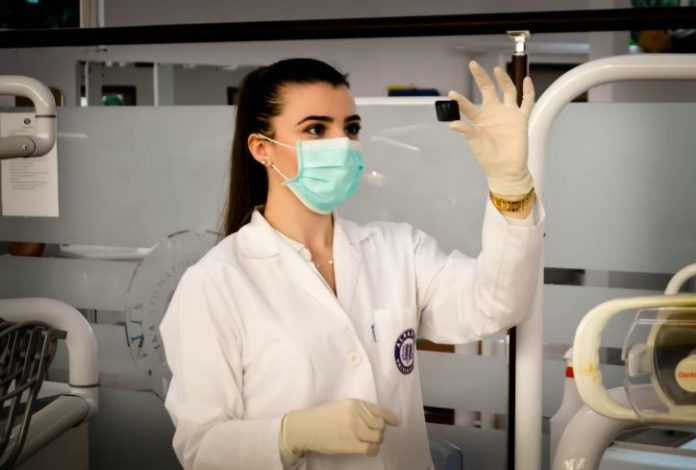Artificial Intelligence (AI) in healthcare is a big thing, with research and investment dollars pouring into the sector. The benefits of AI for health care are plentiful, including predictive analytics, digital health records, patient engagement, and much more. But what are the top benefits of AI in healthcare? Well, according to a new report from Grand View Research, the benefits of AI in healthcare are pretty straightforward. The top three are all related to data analytics and use cases for AI in healthcare. Hospitals are using artificial intelligence to improve patient outcomes, improve medical staff efficiency. And it’s being used to help hospitals keep up with the demands of the growing elderly population.
Artificial intelligence can help doctors better understand patient data, such as the way patients react to certain drugs or changes in their diet. This information could be used to make more informed decisions about medical treatments and ultimately improve outcomes for patients. Hospitals are using AI to improve the quality of care they provide. A new report from Grand View Research highlights how hospitals across North America are increasingly turning to artificial intelligence (AI) for patient management and service delivery.
We have already seen how healthcare software development is being used in the healthcare industry, but we will look at the benefits of AI in Healthcare this time around.
Role of AI in Healthcare
Artificial Intelligence is used to automate processes that are repetitive and dull, thereby increasing productivity. An example of such a process could be the check-up of patients. With the help of AI, doctors can review multiple patient files and thus reduce the time it takes to check them.
The process of data analysis is another area where Artificial Intelligence has made a big difference in healthcare. For example, an algorithm could identify patterns that indicate the onset of diseases and their severity. This will help doctors to provide more accurate treatments and thereby reduce patient mortality rates.
In this way, Artificial Intelligence can be used to make healthcare processes more efficient. In addition, it could also enable the doctor to review a particular case from multiple angles before deciding on the appropriate treatment.
Benefits of AI in the Healthcare
1) Robot-assisted surgery
Robot-assisted surgery has been used for several years to treat patients with severe injuries, and it has been very successful. The robotic arms are controlled by a surgeon in the operating room, who can see what is happening through a camera mounted on the robot arm.
In this study, surgeons operated on human patients with severe spinal cord injuries, removing their spinal cords’ diseased or damaged portions. A number of different types of robotic arms were used, and they varied in terms of how much force was applied to the spine and how many degrees of freedom (or freedom from external constraints) the surgeon had.
The results showed that the robotic arms were more successful than traditional surgical techniques in removing diseased or damaged portions of the spinal cord. In particular, they tended to be better at removing scar tissue from around blood vessels and nerves.
In addition, surgeons who used robotic arms performed much better on the touch perception test than surgeons who used traditional surgical techniques.
This study suggests that robotic surgery is a useful tool for treating patients with severe spinal cord injuries. In particular, it seems to be particularly effective at removing scar tissue from around blood vessels and nerves.
2) Virtual nursing assistants
AI allows clinicians to quickly analyze patient histories, as well as their medications, surgeries, hospitalizations and medical conditions. AI then notifies physicians of potential complications before they arise or worsen. The technology also enables doctors to give personalized care based on each patient’s unique conditions.
According to the US Department of Health and Human Services, nearly 30% of Americans are considered chronically ill or disabled. With AI healthcare, clinicians can provide more personalized care that will help patients lead healthier lives.
AI technology has already started being used in healthcare. For example, at the University of Texas MD Anderson Cancer Center, doctors use AI to diagnose cancerous tumors and evaluate treatment options. It also helps doctors decide on patient treatments based on their preferences and health conditions.
3) Administrative workflow assistants
A recent study revealed that nearly 60% of doctors spend between 1 and 4 hours per week just on filling out paperwork. A patient care assistant can help them with these tasks, freeing up time for their patients.
Today, AI-powered workflow assistants are available in most EHRs but are often hidden behind “more powerful” workflow assistants. This is unfortunate because most patients don’t even know that they exist.
AI assistant programs can be used to help doctors with paperwork or data entry tasks in various ways:
–They can schedule appointments for the doctor.
-They can also manage the doctor’s calendars, sending reminders and responses to emails as needed.
-The assistants can schedule appointments for lab tests or scans, send reminder notifications when it is time to do them, and more.
In addition to these tasks, some AI-powered workflow assistants can also help with other administrative tasks:
-They can help the doctor to organize patient information. For example, they can take notes on medical history or medication lists and store them in a database for future reference. This saves doctors time when it comes to keeping track of their patients
4) Fraud detection
Claims validation/validation with machine learning (ML) is at the heart of AI in the claims management space. ML technologies are already used for fraud detection, process automation, and data quality assessment. Claims management uses a variety of techniques to validate or invalidate claims. These can be broadly classified into two categories: manual and automated. Manual validation involves human involvement in the process, while automated validation requires no human intervention. However, even these are not entirely free from error, which makes them less reliable.
Artificial intelligence (AI) has made its way into claims management in the form of automated validation, or called “validation”. The goal is to make claims processing more efficient and less error-prone by using computer algorithms to detect fraud, invalid information, etc. automatically. This allows for more accurate payment of valid claims and also helps to speed up the process.
The main types of fraud detection include:
There are several ways that AI can be used in this space. These include Predictive analytics, which predicts future fraud. Predictive analytics involves the analysis of historical data and other sources to identify patterns that may indicate fraudulent activity. These methods can include:
The Federal Trade Commission (FTC) has stated that there is “a lot of hype” around AI and that “there are very few products that actually deliver on the promise of AI.” Some examples include:
AI-based fraud detection can be especially helpful in claims management, which involves extensive amounts of data processing.
5) Prescription error recognition
This approach is known as “prescription error recognition.” It’s an example of the three-pronged strategy for improving EHR data quality outlined by Deloitte.
Deloitte found that about half of the issues they examined could be corrected by simple edits to the EHR. For example, a prescription for a patient’s name spelled incorrectly was easily fixed by changing it from “Patient” to “Patient.”
Other errors are more complex and require action from the provider or patients themselves.
Deloitte found that about a quarter of the issues they examined required intervention by the doctor or patient. In some cases, providers ignored them.
Some errors require more work from doctors and patients
AI-powered prescription error recognition apps help automate the process of identifying and correcting errors.
Other error types are more complex but still possible to fix with additional training for EHR users or even a new interface on the EHR itself. Deloitte found that about 15% of issues they examined required some intervention by doctors or patients. For example, they found that one in four prescriptions for a patient’s name had the wrong spelling. But the doctor could edit the prescription to reflect the correct spelling or change it manually on paper, if necessary.
Conclusion
AI and robotics are changing the way we work in healthcare. The Internet of Medical Things (IoMT) is enabling the exchange of health data between medical professionals, hospitals, and devices. This has led to greater efficiency and cost savings, which will improve patient outcomes while reducing healthcare costs.
We are living in an era where Artificial Intelligence (AI) is becoming more and more prevalent. The Internet of Medical Things (IoMT) is one of the most important developments in this field, as it provides an alternative to the traditional approaches used by hospitals for health care. It also brings about opportunities that were never imagined before.










































Role AI & its benefits in such a most important sector like Health care are explained very nicely. Weather it is Fraud detection or Prescription error recognition AI plays an important role & in near features it will be more helpful & most easiest way for our next generation life style.